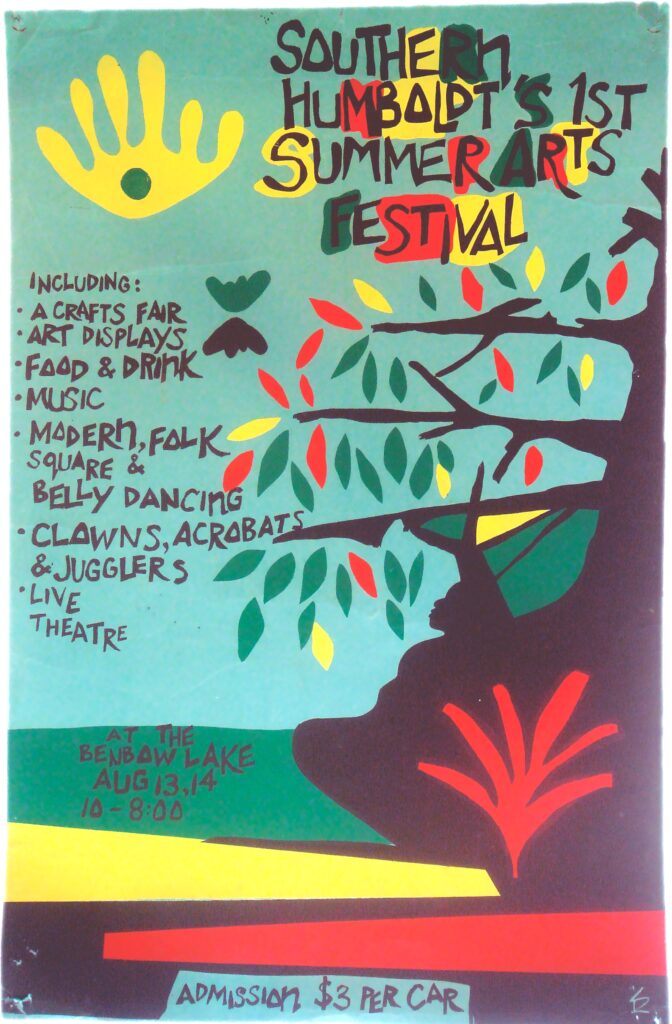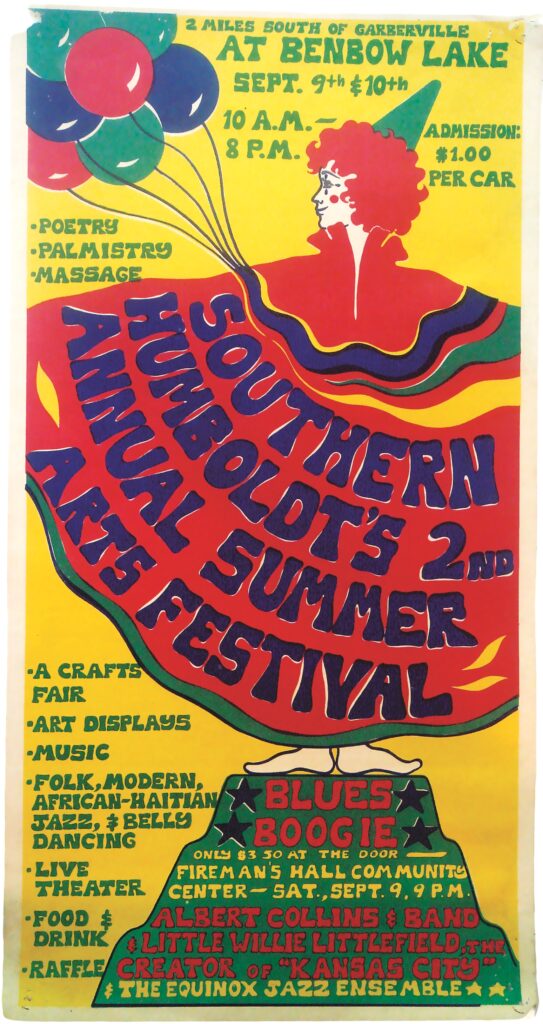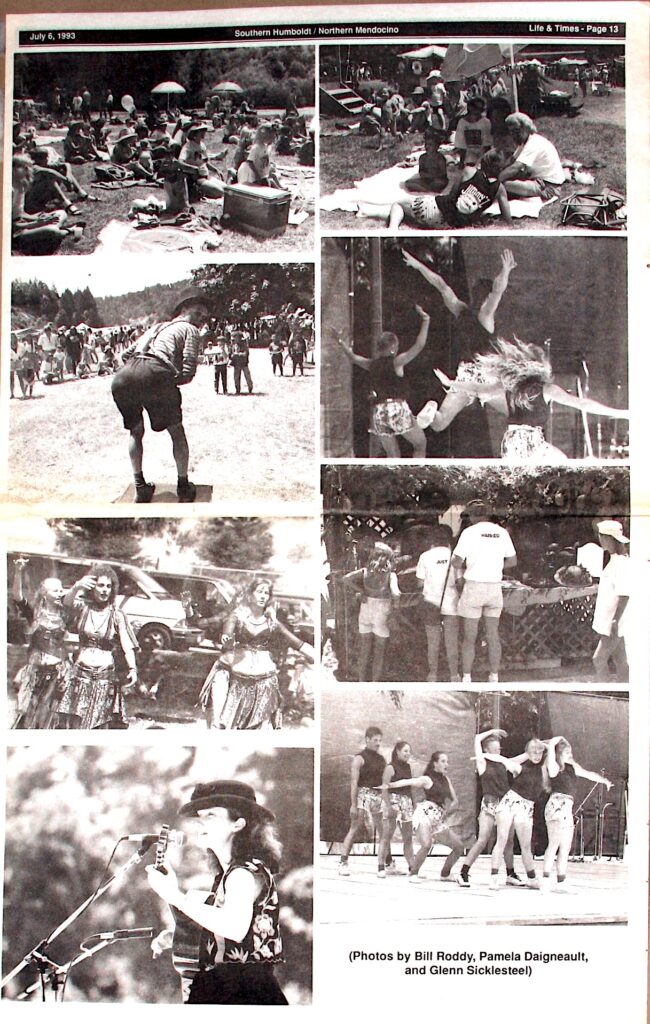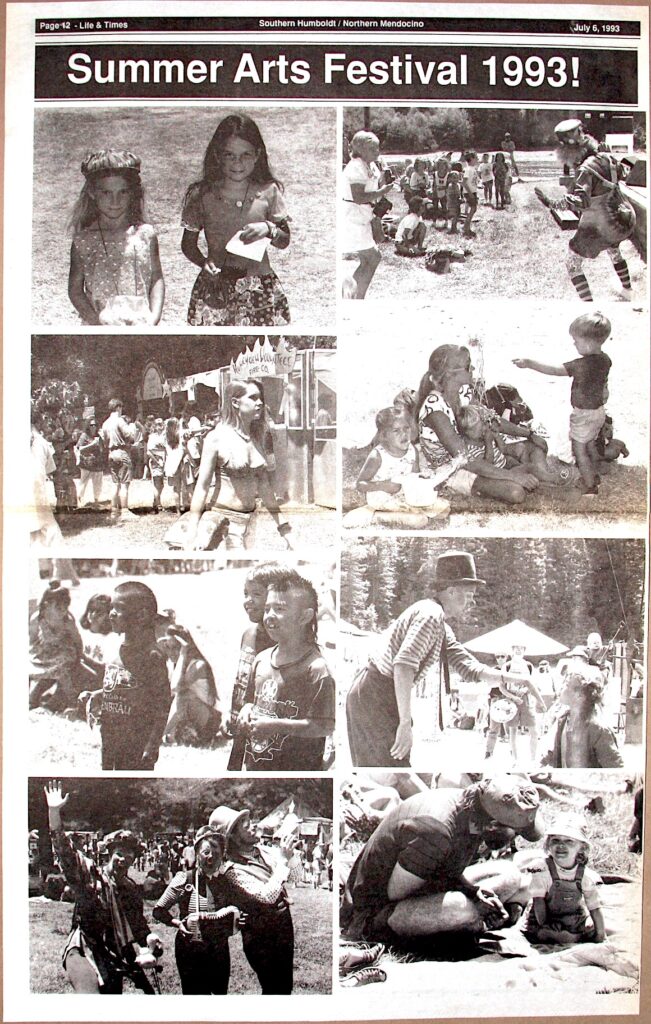Rural Reverb'
A weekly column in Redheaded Blackbelt
#5 Summer Arts Festival Origins and More
Most striking about the Summer Arts Festivals I attended in the late 1980’s and occasionally through the 2000’s was the joy of reunions. Couples, individuals, and families, meeting again after months or longer apart. I recall many strutting in their hippie finery, ambling between the craft stalls and ground-level performances, like Italians out for a Sunday stroll. Zigzagging through the blankets on the lawn at one stage or another, here squatting, there sitting to catch up, always a lot of hugging. People who did not routinely come down the hill for the nightlife of music or the bacchanalia of large music events like Reggae on the River, found a way to attend at least one day of Summer Arts, the seminal annual gathering of the region’s hippies and hippie-friendly neighbors.
If you are in Humboldt County now, you probably know that Summer Arts is on this weekend. The 46th. For nearly half a century it has remained among the region’s most easily and widely loved hippie heritage events. Though not without complaints along the way, as you will see in the letter-to-the-editor included here from thirty years ago.
This week’s Rural Reverb describes the origins of this festival. It includes its first and second year posters and pictures of the 1993 festival along with the letter-to-the-editor rant that appeared in Life & Times, a defunct local weekly.
It bears repeating from last week’s post: What good is splashing around in detail about our counterculture past? To dream away savoring fond memories of a lost past? To excite wow’s of discovery – if you weren’t there?
Yes, and why not? Maybe the comfort of fond memories and the delights of discovery are enough.
But we, at HAPA, have spent years working to preserve and organize this history because we are convinced traces of this era reveal exceptional examples of what rightly now obsesses nonprofit administrators: community resilience. And maybe something deeper, a radical consciousness that, with modest means, established valuable, enduring traditions. We believe that if these histories are better known, they can inform and inspire life now and in the future.
Allan Katz was among the more active activist homesteaders who settled in southern Humboldt County in the 1970s. He co-founded the Salmon Creek Community School, near where he lived with his family, served on the Southern Humboldt Unified School District board, and in the 1980s ran and was narrowly defeated for County Supervisor. After a stint as executive director of Redwoods Rural Health Center, from 1985 to 1991, Allan left Humboldt with his late wife, another local activist, Marylee Bytheriver. In 2003, they returned to Eureka where Katz worked as executive director of the Community Health Alliance of Humboldt-Del Norte until his retirement in 2010.
The idea for the festival was, Katz said, “There’d be arts and crafts and food and performances and several stages.” It was his job to find a location. Eventually, they settled on the park at Benbow Lake. Katz remembers the park’s authorities were interested but, “The administrator there was really nervous that it would turn into a disaster. My job was to get a positive decision out of him, which I did, but it took a while.”




